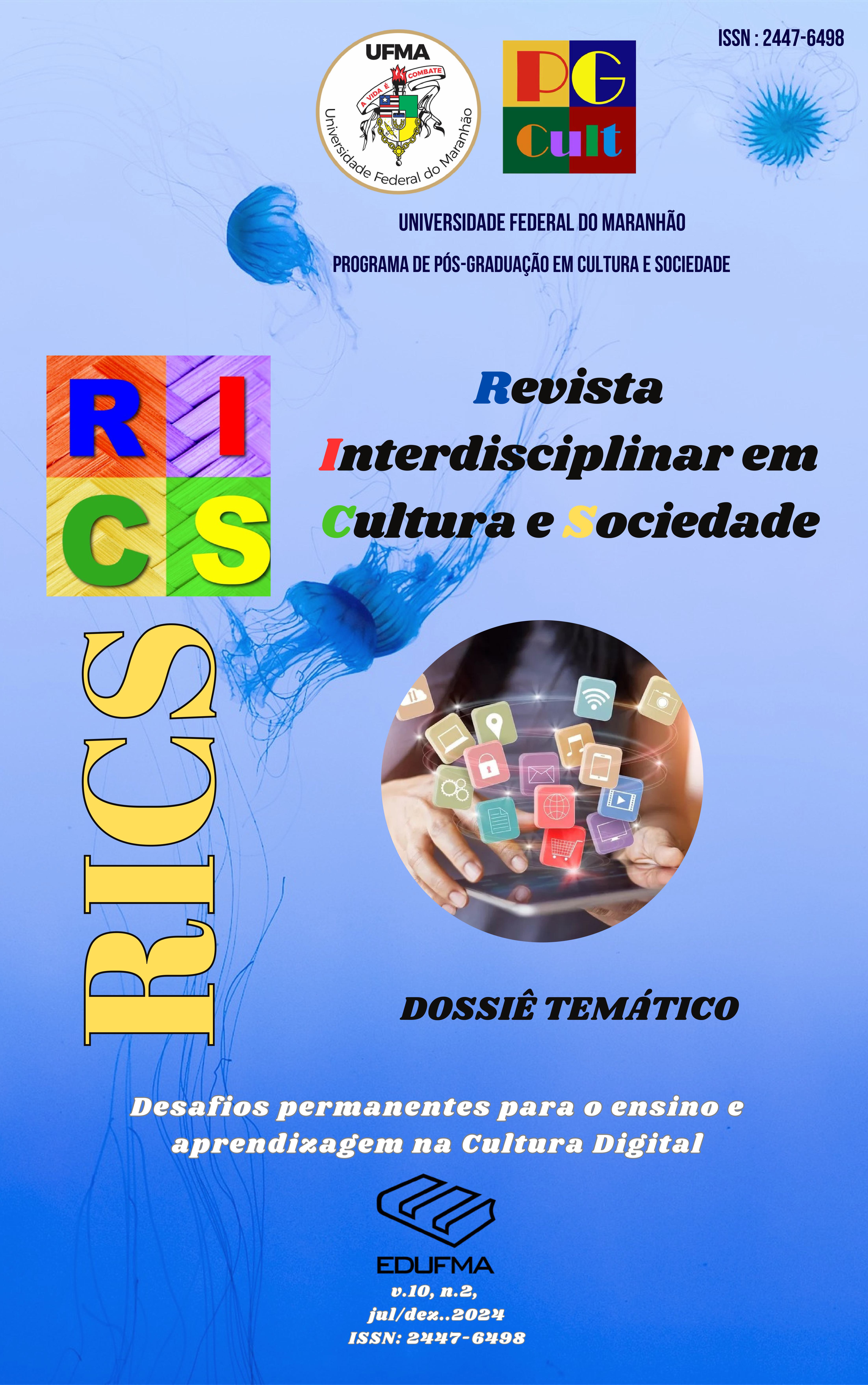O sentido do trabalho nos canaviais para os Guarani Kaiowá da aldeia Te’yikue – Caarapó-MS
DOI:
https://doi.org/10.18764/2447-6498.v10n2.2024.26Palavras-chave:
Psicologia histórico-cultural, Trabalho, Desenvolvimento humano, Significados-sentidosResumo
O objetivo dessa pesquisa é apreender quais os significados e os sentidos que o trabalho executado nas usinas de cana-de-açúcar entre 1980 e 2000 teve para o povo indígena da aldeia Te’ýikue, localizada no município de Caarapó-MS, utilizando os fundamentos e pressupostos teórico-metodológicos do materialismo histórico dialético e da psicologia histórico-cultural. O estudo empregou a entrevista narrativa para a produção dos dados e para a análise dos resultados seguiu a metodologia dos núcleos de significação. Quanto aos resultados, o estudo revela que o sentido é, de fato, pessoal, subjetivo, uma síntese elaborada individualmente a partir da vivência individual de uma situação coletiva, da história singular de cada um em unidade dialética com a história social de uma época, datada e objetivada por inúmeros registros, dando os contornos subjetivos a cada narrativa indígena sobre uma vida de trabalho. Outro indicador dos resultados, é a historicidade dos sentidos: sua transitoriedade e multideterminação.
Downloads
Referências
AGUIAR, W. M. J. & OZELLA, S. Núcleos de significação como instrumento de para a apreensão da constituição dos sentidos. Psicologia Ciência e profissão, 2006. n. 26 (2). p. 222-245. Disponível em http://www.scielo.br/scielo.php?pid=S1414-98932006000200006&script=sci_abstract&tlng=pt. Acesso em 21/10/2023.
____, W. M. J. et al Reflexões sobre sentido e significado. In.: BOCK, A. M. B. & GONÇVALVES, M. G. M. A dimensão subjetiva da realidade: uma leitura sócio-histórica. São Paulo: Cortez, 2009, p. 54-72.
____, W. M. J. & OZELLA, S. Apreensão dos sentidos: aprimorando a proposta dos núcleos de significação. R. bras. Est. pedag., Brasília, v. 94, n. 236, p. 299-322, jan./abr. 2013. Disponível em https://www.scielo.br/pdf/rbeped/v94n236/15.pdf. Acesso em 21/10/2023.
____, W. M. J. et al. Núcleos de significação: uma proposta histórico-dialética de apreensão das significações. Cadernos de Pesquisa. V. 45, n. 155 p. 56-75. Jan./mar.2015. Disponível em http://www.scielo.br/pdf/cp/v45n155/1980-5314-cp-45-155-00056.pdf. Acesso em 20/10/2023.
BRAND, A. O impacto da perda da terra sobre a tradição Kaiowa/Guarani: os difíceis caminhos da palavra. Tese (Doutorado em História) - Pontificia Universidade do Rio Grande do Sul, Porto Alegre, 1997.
____, A. Os complexos caminhos da luta pela terra entre os Kaiowá e Guarani no MS. Tellus, ano 4, n. 6, p. 137-150, abr. 2004 Campo Grande – MS. Disponível em: http://www.tellus.ucdb.br/index.php/tellus/article/view/82. Acesso em 20/10/2023.
BUCKER, M. B. et al. A força de trabalho indígena da Aldeia Amambai na Indústria sucroalcooleira em Mato Grosso do Sul (2010 – 2011). Albuquerque: revista de História, Campo Grande, MS, v. 4 n. 7 p. 185-212, jan./jun. 2012. Disponível em https://periodicos.ufms.br/index.php/AlbRHis/article/view/4004. Acesso em 21/07/2019.
DUARTE. N. A individualidade para si: contribuição a uma teoria histórico-crítica da formação do indivíduo. 3. ed. Campinas,SP: Autores Associados, 2013.
JOVCHELOVITCH, S. & BAUER, M. W. Entrevista narrativa. In M. W. Bauer & G. Gaskell (Eds.), Pesquisa qualitativa com texto, imagem e som: Um manual prático Petrópolis: Vozes, 2008. p. 90-113.
KAHHALE, E. M. S. P. & ROSA, E. Z. A construção de um saber crítico em psicologia. IN: A dimensão subjetiva da realidade: uma leitura sócio-histórica. São Paulo: Cortez, 2009. p. 19-51.
LEONTIEV, A. O desenvolvimento do psiquismo. Lisboa: Horizonte Universitário,1978a.
____. A. Actividade, Consciência e Personalidade. 1978b (Maria Silvia Cintra Martins Trad.). Disponível em http://www.dominiopublico.gov.br/pesquisa/DetalheObraForm.do?select_action=&co_obra=2309. Acesso em 21/10/2023.
MARX, K. Manuscritos econômico-filosóficos. São Paulo: Boitempo, 1844/2008.
___, K. O Capital: crítica da economia política. Livro I. São Paulo: Boitempo, 1867/2017.
OLIVEIRA, B. A. Dialética do singular-particular-universal. In.: Encontro de Psicologia Social e Comunitária. Anais do V Encontro em Bauru,SP. Abrapso, 2001. P. 1-24. Disponível em http://stoa.usp.br/mpp5004/files/1/18602/ADialeticaDoSingularParticular. Acesso em 20/10/2023.
REZENDE, S. B. A. Potencialidades de desenvolvimento local dos kaiowá e dos guarani cortadores de cana-de-açúcar da aldeia Te’ýikue. 2011 (Dissertação de Mestrado) UCDB: Campo Grande-MS.
SOUZA, J. O. C. O sistema econômico nas sociedades indígenas Guarani Pré-coloniais. Horizontes antropológicos, Porto Alegre, ano 8, n. 18, p. 211-253, dezembro, 2002.
TONET, I. Método científico: uma abordagem ontológica. São Paulo: Instituto Luckács, 2013.
VYGOTSKI, L.S. Teoria e método em Psicologia. São Paulo: Martins Fontes, 2004.
Downloads
Publicado
Como Citar
Edição
Seção
Licença
Copyright (c) 2024 Revista Interdisciplinar em Cultura e Sociedade

Este trabalho está licenciado sob uma licença Creative Commons Attribution 4.0 International License.

Este trabalho está licenciado com uma Licença Creative Commons Atribuição 4.0 Internacional. Os autores da Revista Interdisciplinar em Cultura e Sociedade mantêm os direitos autorais.


















